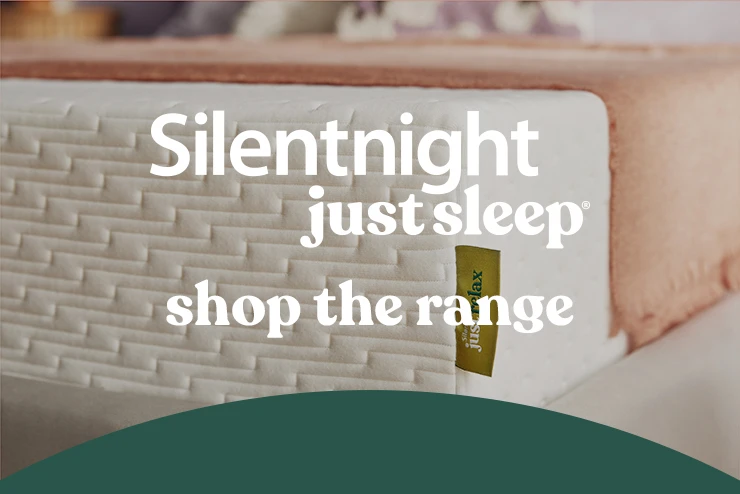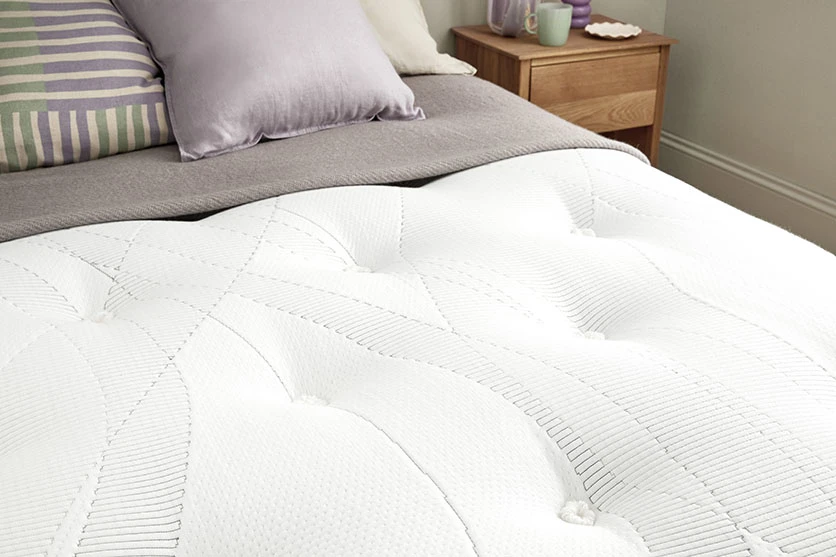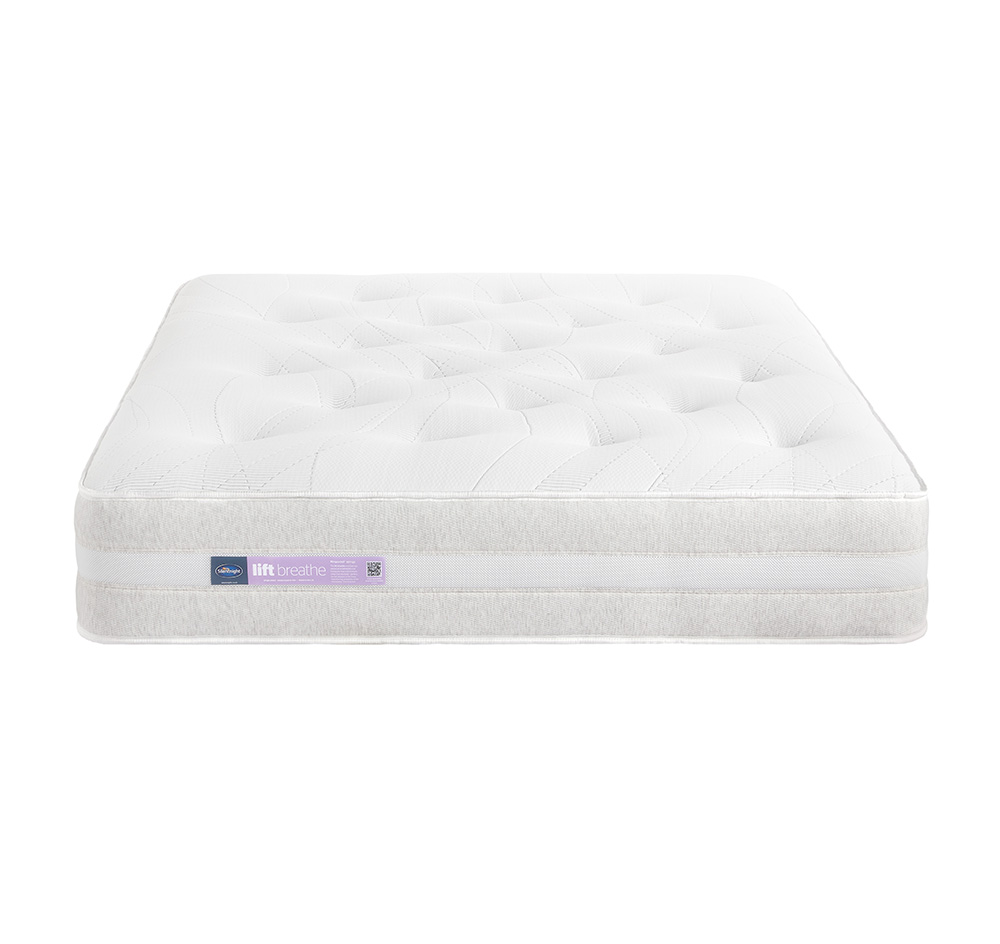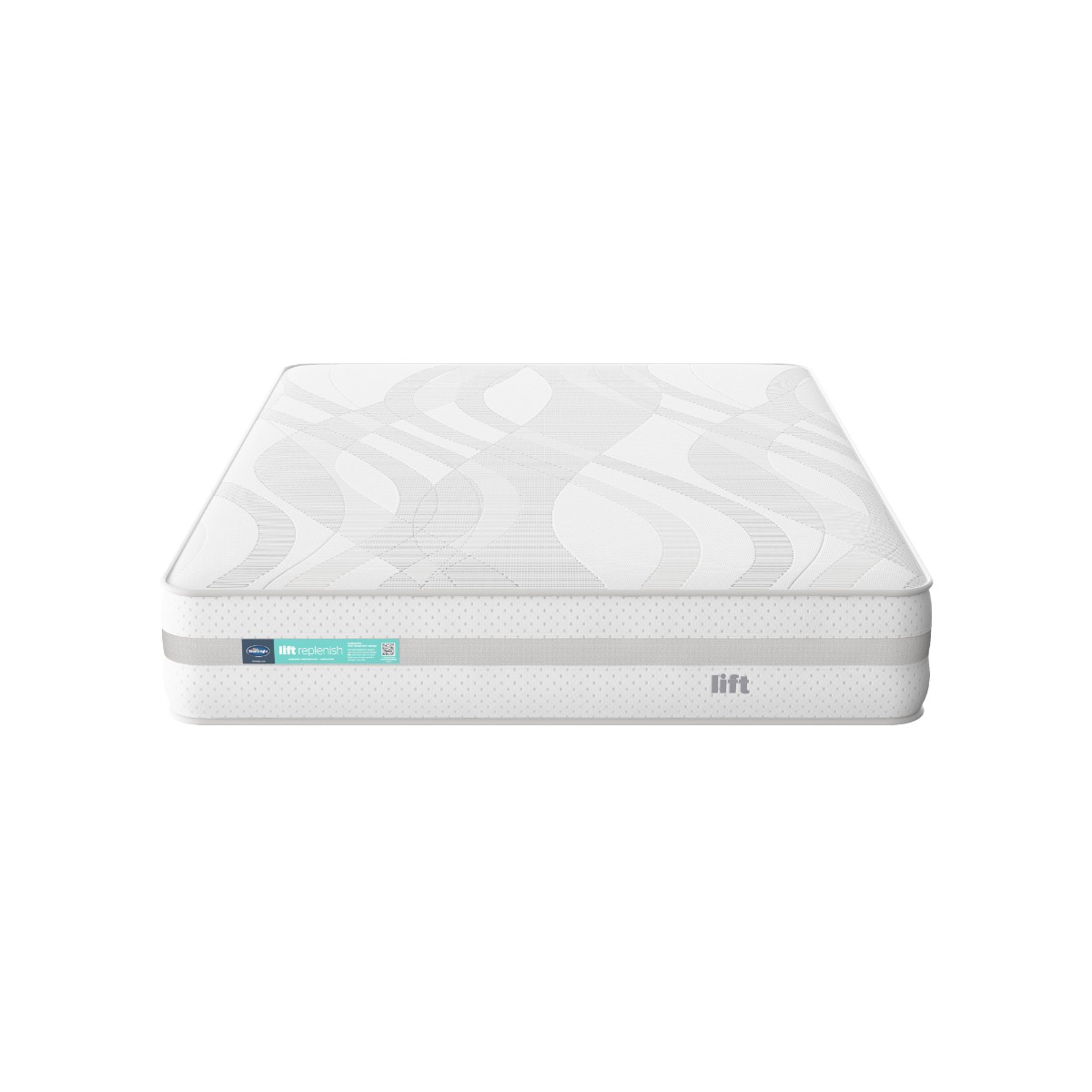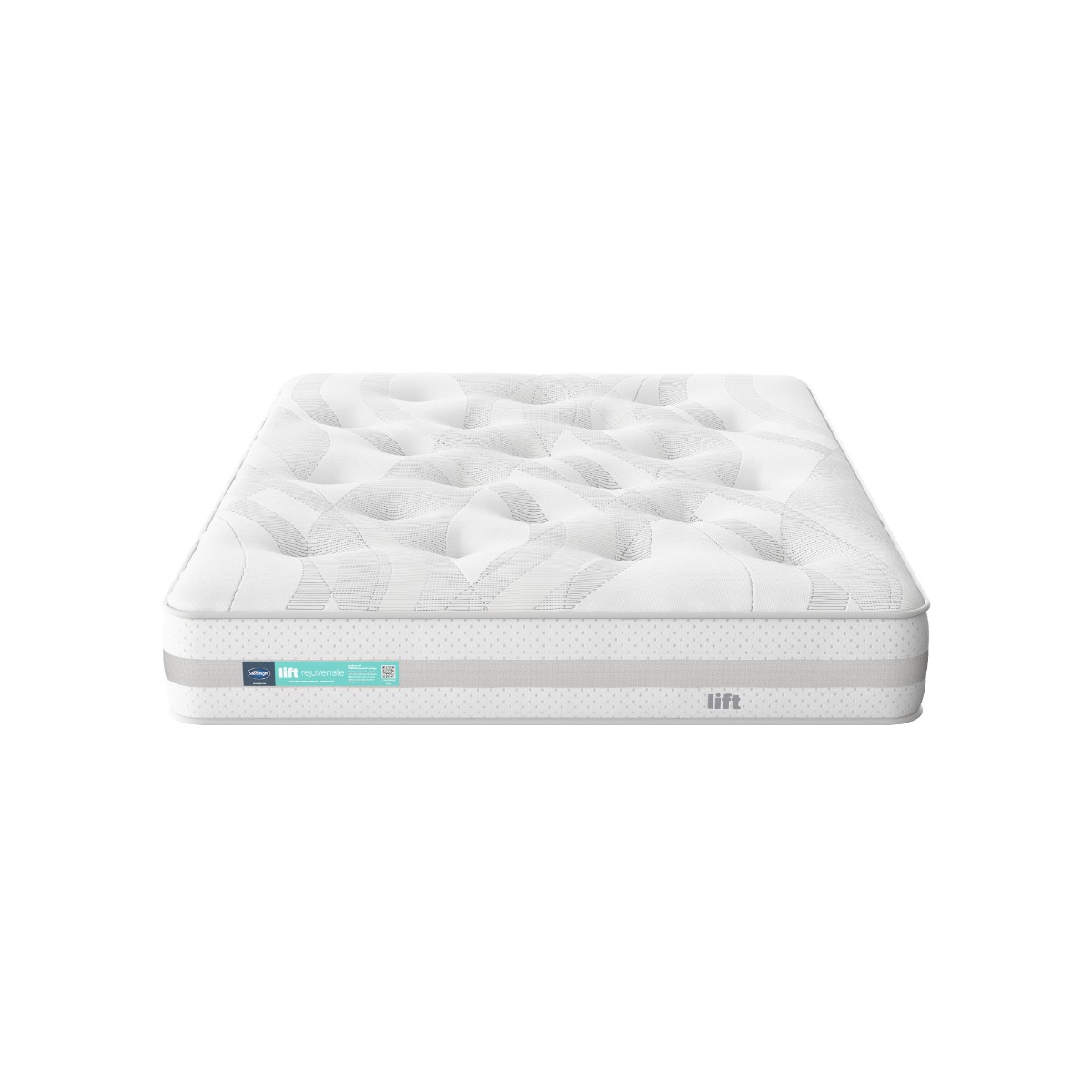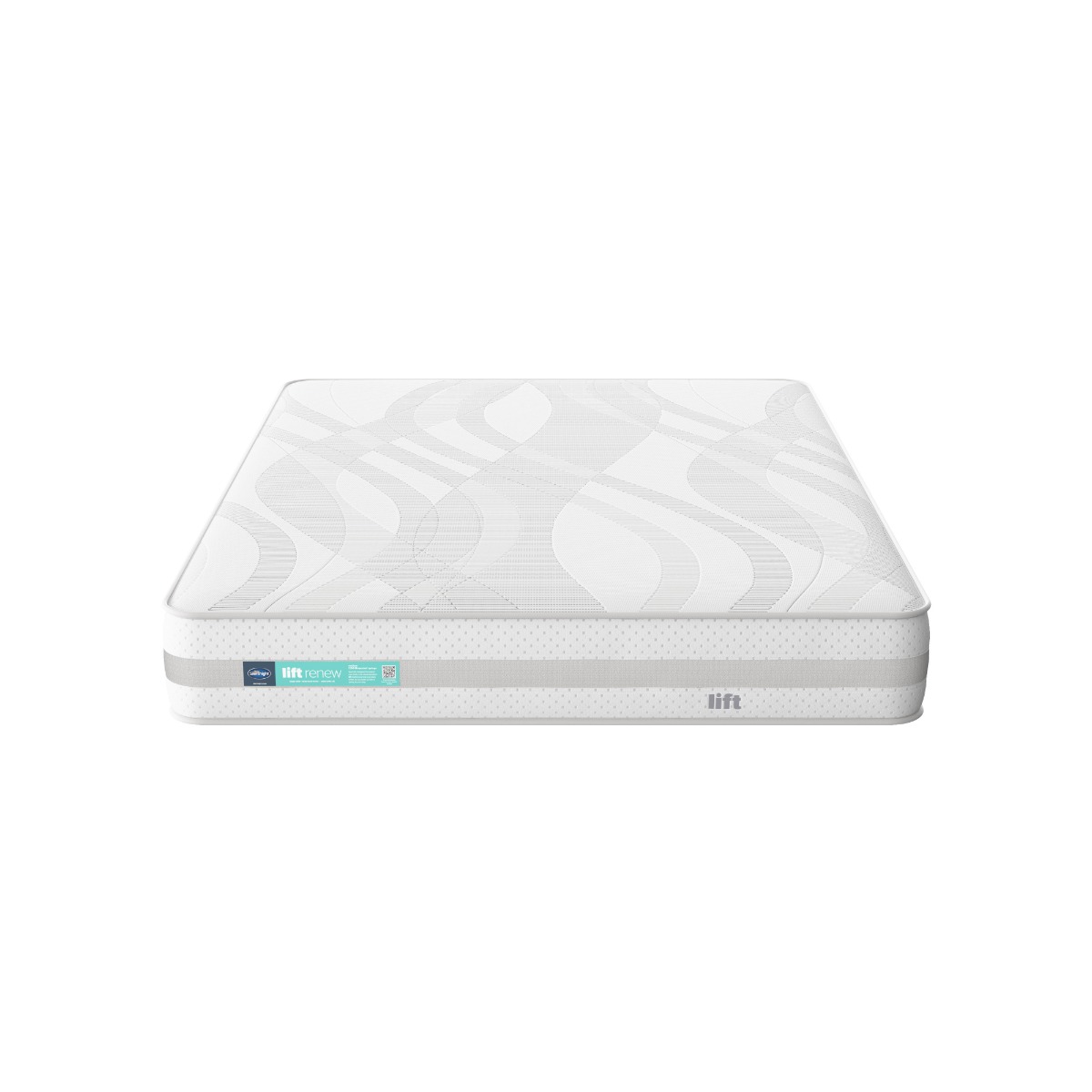why do I sweat in my sleep?
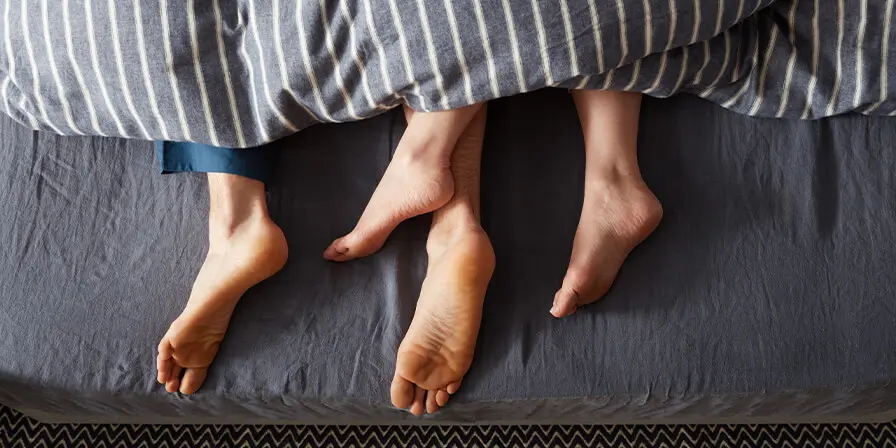
In association with Silentnight Lift Breathe - The perfect mattress for hot sleepers, Silentnight explains night sweats and how to handle being a hot sleeper.
People who suffer with night sweats often find themselves waking up in the night to find their bedclothes and bedding drenched, even when their bedroom is at a cool temperature. It’s a common complaint that stops our nation from getting a good night's sleep. Whilst night sweats are very inconvenient, they are normally harmless.
However, if you’re regularly having night sweats that wake you up and are also experiencing a high temperature, cough, diarrhoea or unexpected weight loss make sure to talk to your GP for advice.
what are night sweats?
Night sweats are when you experience excessive periods of perspiration that happen when you’re asleep and are more than just simply overheating, which usually occurs if you’ve got a heavy blanket over you or if the room temperature is too high.
what causes night sweats?
So, why am I sweating in my sleep? Night sweats happen when your blood vessels expand, leading to increased blood flow, and then they contract, which causes a sudden and intense wave of heat throughout your body. This intense wave of heat then results in sweating, reddening of the skin and a fast heartbeat, sometimes followed by a cold chill. Those who experience hot sweats during the night often find themselves waking up drenched in sweat with both clothes and bedding soaked.
when to be concerned about night sweats
Most of the time night sweats are nothing to worry about but sometimes they can be a symptom of something, such as a side effect of a health issue. Here are the most common causes:
Menopause night sweats – One possible cause of night sweats is menopause. If you’re aged over 40 and struggle to sleep ’at night due to abnormal sweating, hot flushes caused by menopause may be the issue.
Medicine night sweat – Some medication can trigger sweating in people. For example, anti-depressants, steroids and painkillers are known to cause swating.* This is something to chat through with your doctor if you are taking regular medication.
Anxiety night sweats – Some mental health conditions, such as anxiety, can have physical symptoms, including excessive sweating at night.
Hypoglycaemia night sweats - Low blood sugar can cause excessive sweating even when cool.
Alcohol night sweats – Certain substances such as alcohol alter the metabolism and can result in night sweats.
Hyperhidrosis night sweats – A harmless condition that causes you to sweat too much all the time.
There may be no identifiable cause for your night sweats, and it could just be one of those things that happens now and then.’’ But don’t worry, we’ve put together some of our tips on how to stop night sweats to help you get a better night’s sleep!
how to stop sweating at night
Keep your bedroom cool
Although a warm bedroom isn’t the main cause of night sweats, it can trigger them, so creating a sleep environment that’s cool can help to prevent heat from building up around your body. Our core body temperature needs to drop in order for us to access the good quality sleep that we need as hot flashes can be disruptive to sleep. Keep the thermostat set to a low temperature and open up the window to let the cool air flow in.
Wear light, breathable clothing
Avoid wearing tight-fitting clothing to bed as heat will only become trapped. Instead, wear clothing that’s lightweight and breathable to minimise discomfort.
Choose cooling bedding
Bedding made from natural materials, such as cotton, provides better breathability and increases comfort levels. You may also want to try the Silentnight Cool Touch range, which provides a way to help prevent overheating, aiding with a more comfortable night’s sleep.
Choose a cooling mattress
Mattresses with breathable layers such as Lift Breathe help to prevent overheating by moving heat and moisture away from the body, keeping you cool and dry.
Drink cold water
A small amount of cool water before going to bed can help you to achieve a more comfortable and pleasant temperature. Furthermore, if you wake up in a sweat, place a cool washcloth on your head or run cold water over your wrists to help you cool down.
Avoid alcohol, caffeine and spicy foods too close to bedtime
These can all lead to spikes in your body temperature and induce sweating, so make sure to avoid eating spicy foods or large meals and drinking alcohol and caffeine in the evening.
Lifestyle adjustments
Maintaining a healthy weight and keeping stress to a minimum can help to reduce the severity of night sweats. You should also avoid exercising too close to bedtime as your workout will raise your body temperature.
Try relaxation techniques
Finally, finding the best way to put yourself at ease, such as deep, controlled breathing, really can go a long way to helping you better deal with night sweats.
We often find that during night sweats we create a negative association with the bedroom, making you feel stressed/uneasy/anxious about going to bed as you know your sleep will be disrupted by night sweats. Relaxation techniques are a great way to calm the mind and help get rid of these thoughts before bed - Hannah Shore, Silentnight sleep expert
sweating at night
More commonly we sweat at night simply because it's too hot in bed. Maybe that foam mattress is trapping in the heat, or your duvet is too warm - these aren't what we class as night sweats, but can lead to waking up wet through.
If you’re looking for a more permanent solution to stay cool at night, look for a highly breathable mattress with moisture wicking surface, choose cooling bedding, and adjust the temperature of your room.
the perfect cooling mattress for hot sleepers
When you're too hot in bed it could mean your mattress isn't working hard enough to keep you comfortable and cool. The ideal mattress for hot sleepers would have great airflow, without compromising on the comfort that foam-topped mattresses are famed for.
Silentnight - Lift Breathe combines the same pressure relief of memory foam with 10x more breathability for the best of both worlds. Meaning hot sleepers no longer need to compromise.
Lift Breathe features:
Breathable Sleep System - Reduces overheating with enhanced breathability and moisture wicking.
Platinum Pad - No compromise cocooning pressure relief with 10 time the breathability of memory foam.
Intense™ sleep surface - Scientifically proven to reduce cortisol levels and morning stress brought on by the menopause.
1600 Mirapocket™ springs - Superior tailored support that responds to your body and evently distributes your weight.
And for people experiencing the symptoms of menopause, this mattress has an extra ace in it's pocket. Intense™ fabric technology, proven to reduce cortisol levels and morning stress, is woven into the sleep surface.
Rejuvinating mattresses
menopause and night sweats
Women going through the perimenopause and menopause often experience night sweats, which in turn can contribute to poor quality sleep and insomnia, especially if severe. During this time, significant changes in hormones, so the low or changing levels of oestrogen and progesterone in particular, are the main contributor to night sweats. According to our sleep research expert:
"The hormone Progesterone can have a sedative effect on the body, it stimulates the production of NREM (Non-Rapid Eye Movement) sleep, also known as deep sleep. Although too much progesterone may mean an imbalance of sleep types. We need just the right amount of both REM and NREM to feel refreshed throughout the day. Affecting sleep architecture, the amount and time of each type of sleep we get throughout the night, could leave the individual feeling sleepier even though they have achieved the right amount of sleep.
"Oestrogen’s effect on sleep is a little more complex. It is associated with helping to produce both wake promoting and sleep promoting mechanisms in the body. Oestrogen has shown to help you fall asleep quicker, decrease the number of awakenings throughout the night and increase overall sleep time. Meaning a reduction in the amount of oestrogen within the body may lead to the individual struggling to fall asleep, stay asleep and wakening up early.
"Oestrogen also helps to regulate body temperature by keeping the core body temperature low throughout the night. Therefore, a reduction in oestrogen may also lead to dysregulated core body temperature (hot flushes) which can wake an individual throughout the night." - Hannah Shore
When we surveyed 2000 women in menopause earlier this year we found that 55% of women feel there's a stigma in talking about the menopause, while 79% still believe there isn't enough related support. That's a lot considering a significant portion of menopausal women are experiencing distupted sleep from night sweats, insomnia, and heart palpatations.
Get your copy of the Silentnight "sleep & menopause" infographic as a printable PDF.






